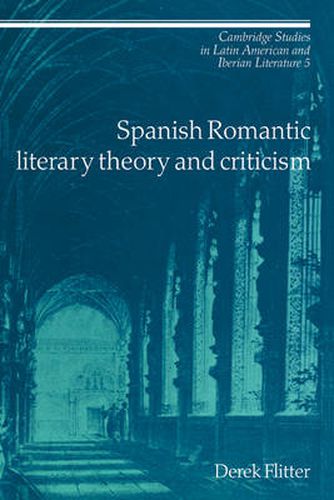Readings Newsletter
Become a Readings Member to make your shopping experience even easier.
Sign in or sign up for free!
You’re not far away from qualifying for FREE standard shipping within Australia
You’ve qualified for FREE standard shipping within Australia
The cart is loading…






This study provides a fresh assessment of Spanish Romanticism through a sympathetic appraisal of its literary theory and criticism. It identifies the origins of Spanish Romantic thought in the theories of German Romantic thinkers, in particular Herder’s historicism. The range of reference, from the articles of Bohl von Faber to the judgements made by Canete and Valera is counterpointed by the detail of close readings of books and articles published between 1834 and 1844, together with an examination of the ideas which informed the creative work of Fernan Caballero. Derek Flitter’s use of the history of ideas offers a corrective to the recent preponderance of political approaches to Spanish Romanticism, countering their stress on its radical and liberal associations with a detailed demonstration that the majority of Spanish Romantic writers derived their inspiration from restorative, traditionalist and Christian elements in their contemporaries’ theory and criticism.
$9.00 standard shipping within Australia
FREE standard shipping within Australia for orders over $100.00
Express & International shipping calculated at checkout
This study provides a fresh assessment of Spanish Romanticism through a sympathetic appraisal of its literary theory and criticism. It identifies the origins of Spanish Romantic thought in the theories of German Romantic thinkers, in particular Herder’s historicism. The range of reference, from the articles of Bohl von Faber to the judgements made by Canete and Valera is counterpointed by the detail of close readings of books and articles published between 1834 and 1844, together with an examination of the ideas which informed the creative work of Fernan Caballero. Derek Flitter’s use of the history of ideas offers a corrective to the recent preponderance of political approaches to Spanish Romanticism, countering their stress on its radical and liberal associations with a detailed demonstration that the majority of Spanish Romantic writers derived their inspiration from restorative, traditionalist and Christian elements in their contemporaries’ theory and criticism.